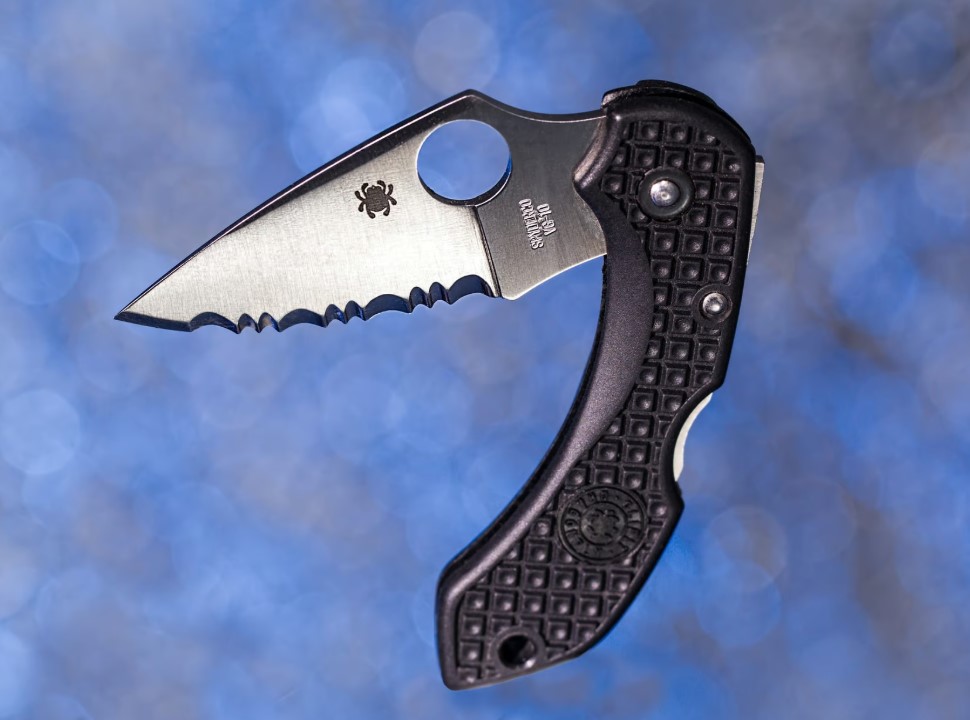The question of whether switchblades are illegal in Massachusetts has been a topic of discussion for decades. This article provides an in-depth look at the history, legal developments, and current status of switchblade laws in Massachusetts, along with practical advice for residents and visitors. Follow: self-defensetools.com!
Understanding Switchblades
Switchblades, also known as automatic knives, are characterized by their spring-loaded mechanism that allows the blade to deploy at the press of a button. These knives were historically associated with dangerous activities, leading to widespread bans in the mid-20th century. Their distinctive design makes them both controversial and highly debated in legal contexts.
Historical Context of Switchblade Laws in Massachusetts
In 1957, Massachusetts enacted a law banning the possession, carrying, and sale of switchblade knives. This legislation was part of a broader movement in the United States aimed at curbing violent crime associated with specific weapons. Switchblades, often sensationalized in popular media as tools of gang violence, became the focal point of these restrictions.
The Massachusetts law specifically classified switchblades as dangerous weapons and imposed severe penalties for violations. Possessing a switchblade could lead to fines, imprisonment, or both. The ban aligned with the federal Switchblade Knife Act of 1958, which restricted the manufacture and interstate sale of these knives.
The 2024 Court Ruling: A Landmark Decision
In August 2024, the Massachusetts Supreme Judicial Court (SJC) issued a groundbreaking decision overturning the state’s decades-old ban on switchblades. This ruling was influenced by the U.S. Supreme Court’s 2022 decision in New York State Rifle & Pistol Association v. Bruen, which emphasized that modern weapon regulations must align with historical traditions of the United States.
The SJC determined that the switchblade ban violated the Second Amendment’s protection of the right to keep and bear arms. The court’s decision acknowledged that while switchblades might have been stigmatized in the past, they are no longer uniquely associated with criminal activity. Instead, they are recognized as tools with legitimate uses, including self-defense and utility purposes.
Current Legal Status of Switchblades in Massachusetts
Following the SJC’s ruling, individuals in Massachusetts can now legally possess and carry switchblade knives. However, it is essential to understand the nuances of the law and the remaining restrictions:
1. Double-Edged Blades
While the ban on switchblades has been lifted, other knife-related restrictions remain in place. For instance, double-edged knives, such as stilettos, daggers, and dirks, are still illegal to carry in Massachusetts. Violating this prohibition can result in legal consequences.
2. Local Ordinances
Massachusetts does not have statewide preemption for knife laws, meaning cities and towns can establish their own regulations. As a result, local ordinances may impose additional restrictions on switchblades or other types of knives. It is crucial to research and comply with local laws to avoid potential legal issues.
3. Manufacture and Sale Restrictions
Although carrying switchblades is now legal, the state’s ban on their manufacture and sale remains in effect. This means individuals can own and carry switchblades, but producing or selling them within Massachusetts is still prohibited.

Key Considerations for Knife Owners
The legalization of switchblades in Massachusetts offers greater freedom for knife enthusiasts and everyday users. However, responsible ownership and adherence to the law are essential. Here are some key considerations:
Understanding Definitions
Not all knives with spring mechanisms are classified as switchblades. Massachusetts law previously defined switchblades as knives with blades that open automatically by hand pressure applied to a button or other device in the handle. Familiarize yourself with this definition to ensure your knife complies with legal standards.
Practical Uses of Switchblades
Switchblades are valued for their one-handed operation, making them practical for various tasks. Common uses include:
- Emergency situations, such as cutting seatbelts
- Utility tasks, such as opening packages or cutting rope
- Self-defense, where quick deployment is necessary
Legal Carry and Use
While carrying a switchblade is now legal, using it in a threatening or unlawful manner can result in criminal charges. It is essential to use these tools responsibly and within the bounds of the law.
Implications of the 2024 Ruling
The SJC’s decision reflects a broader trend of reevaluating weapon regulations in light of constitutional rights. This ruling aligns Massachusetts with other states that have loosened restrictions on switchblade knives, acknowledging their practical uses and diminishing stigma.
For Residents
Massachusetts residents now have greater flexibility in choosing and carrying knives for personal use. However, staying informed about local regulations and adhering to responsible practices remain vital.
For Visitors
Tourists and visitors to Massachusetts can now carry switchblades legally, provided they comply with state and local laws. Researching specific municipal regulations is advisable to ensure compliance during your stay.
Frequently Asked Questions
Are switchblades completely legal in Massachusetts?
Switchblades are legal to possess and carry, but restrictions on their manufacture and sale remain in place. Additionally, local ordinances may impose further regulations.
Can I carry other types of knives?
Many types of knives are legal to carry in Massachusetts, but double-edged blades, such as stilettos and daggers, are still prohibited. Always verify the legality of specific knives before carrying them.
What should I do if I’m stopped by law enforcement with a switchblade?
If you are stopped by law enforcement, remain calm and cooperative. Ensure that your knife complies with state and local laws. Carrying documentation, such as proof of purchase, may be helpful.
Conclusion
The legalization of switchblades in Massachusetts marks a significant shift in the state’s approach to knife laws. This change underscores the importance of balancing constitutional rights with public safety concerns. While the ruling provides greater freedom for knife owners, responsible use and adherence to remaining restrictions are essential.
Whether you are a Massachusetts resident or a visitor, understanding the legal landscape surrounding switchblades is crucial. Stay informed, comply with the law, and enjoy the practical benefits of these versatile tools responsibly.
Related Posts: Are Switchblades Illegal in Maryland? A Comprehensive Guide









